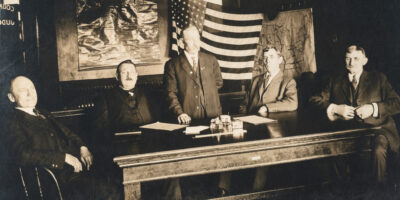Gold Wars
Calling irredeemable currency ‘Esperanto money’ is apt. The Biblical story may be interpreted allegorically as an admonition not to challenge God by attempting to build a tower of irredeemable debt that is to reach to High Heaven. But the admonition fell upon deaf ears. Now God’s wrath is upon us. Currencies of nations have been confused. The tower can never be completed for lack of compatibility of means of payment. The hope of Esperanto money to remove the curse of Babel is in vain. Other synthetic currencies spring up such as the SDR (special drawing right), the euro, and so on. The confusion of currencies, and the curse of Babel, remains.” Get it here.
Gold Wars: The Battle Against Sound Money as Seen From a Swiss Perspective
Ferdinand Lips
The Foundation for the Advancement of Monetary Education. New York, New York
Copyright 2001 by Ferdinand Lips.









